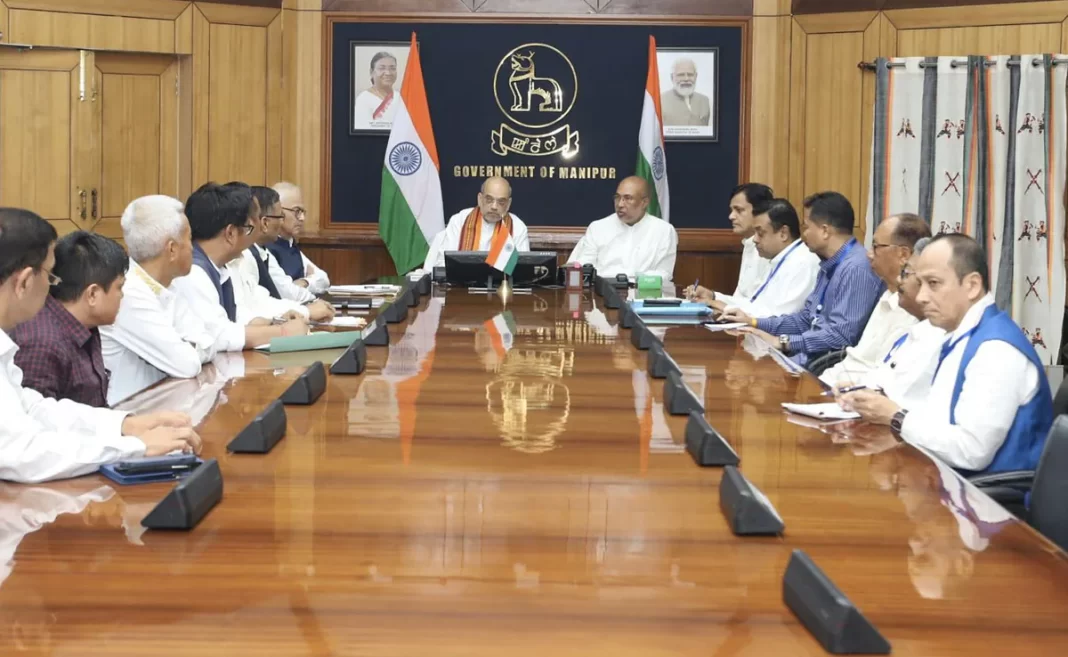Revolutionary Changes Proposed to Ensure Speedy Justice and Contemporary Legal System
In a landmark move aimed at overhauling the archaic legal framework of India’s criminal justice system, Union Home Minister Amit Shah presented three Bills in the Lok Sabha on Friday, signaling a departure from the British-era Indian Penal Code, Indian Evidence Act, and Code of Criminal Procedure. The proposed changes come as part of the Bharatiya Suraksha Sanhita Bill, 2023, which introduces substantial reforms, including capital punishment for mob lynching and stringent penalties for sexual offenses.
The Bharatiya Suraksha Sanhita Bill, 2023, which is at the center of this sweeping reform, introduces a slew of changes that align with contemporary societal needs and aspirations. Under the bill, capital punishment becomes the highest sentence for the heinous crime of mob lynching, reflecting the government’s resolve to tackle the rising instances of mob violence. Furthermore, the bill seeks to address the issue of deceitful sexual relationships by prescribing ten years of imprisonment for engaging in sexual intercourse with women under the false promise of marriage.
One of the notable aspects of the bill is the provision that stipulates that consensual sexual intercourse by a man with his wife, provided she is not below eighteen years of age, will not be classified as rape. This nuanced approach aims to balance the evolving understanding of marital relationships while ensuring the protection of individual rights.
Amit Shah emphasized that the proposed legislation marks a watershed moment in India’s criminal justice system. The Bharatiya Nyaya Sanhita (BNS) Bill, 2023, Bharatiya Nagarik Suraksha Sanhita (BNSS) Bill, 2023, and Bharatiya Sakshya (BS) Bill, 2023, introduced alongside the Bharatiya Suraksha Sanhita Bill, 2023, replace the outmoded Indian Penal Code, Criminal Procedure Act, and Indian Evidence Act respectively. These bills, if enacted, promise to usher in a legal paradigm that prioritizes swift justice delivery and caters to the needs of the contemporary Indian society.
One of the significant reforms proposed in the bills is the concept of trying absconding criminals in absentia. This provision is particularly relevant in cases involving notorious figures such as underworld don Dawood Ibrahim. The legislation envisions a process whereby such criminals can be brought to justice even in their absence, thus bridging a critical gap in the current judicial system.
The bills also introduce a raft of measures to streamline the criminal justice process. These include mandatory video recording of statements in cases of sexual violence against women, ensuring transparency and safeguarding the rights of survivors. Additionally, the bills mandate that police update complainants about the status of their cases within 90 days. Withdrawal of cases punishable by seven years or more requires consultation with the victim before proceeding.
Another significant departure from the existing system is the introduction of community service as a punitive measure for specific crimes, providing a more rehabilitative approach to justice. The bills also set a strict timeline of 180 days to file chargesheets, curbing indefinite delays in investigations. For the first time, the bills place a time limit on the filing of chargesheets, ensuring expeditious proceedings.
Union Home Minister Amit Shah expressed his ambition to elevate the conviction rate to an impressive 90%. He outlined measures to achieve this goal, including mandatory forensic collection of evidence in all crimes punishable by seven years or more. Furthermore, the bills mandate the designation of a police officer in each station to provide information about the custody status of accused persons to their relatives, both online and physically.
One particularly noteworthy change is the government’s involvement in deciding prosecution sanctions against police officers and civil servants. This move is aimed at expediting cases and preventing undue delays due to bureaucratic processes.
In conclusion, the introduction of these comprehensive bills heralds a new era in India’s criminal justice system. By focusing on speedy justice delivery, contemporary legal principles, and a balanced approach to various offenses, the government aims to create a more just and equitable society. The bills now await deliberation by the parliamentary standing committee on home affairs, marking the beginning of a critical phase in their journey toward enactment.

